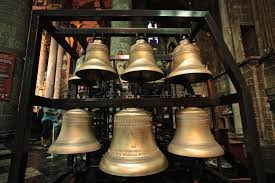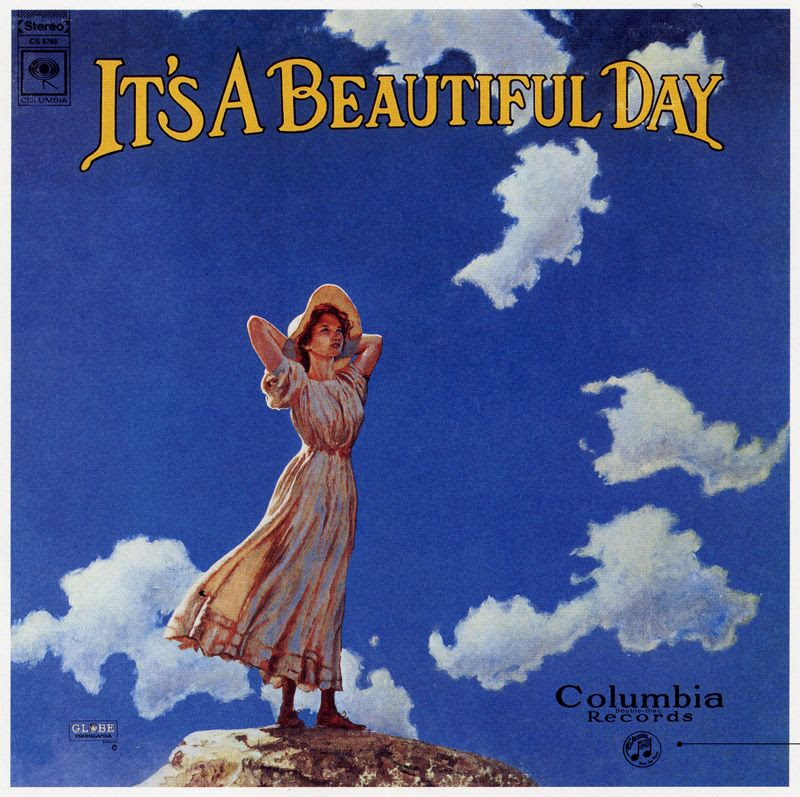| Acts 15 My seminary, Seabury-Western, was located on the campus of Northwestern University in Evanston, Illinois outside of Chicago. Seabury-Western Theological Seminary (Episcopal) was treated as one of the graduate schools associated with Northwestern, and so we had access to the university library (in addition to the impressive theological library on the Seabury campus), the gym, health-services and all of the privileges extended to any graduate student at Northwestern, including top-notch visiting lecturers and concert hall venues. No free admission to football games, however! Mornings at Seabury were announced by the ringing of the carillon, which called us to Evensong also each dusk. The North Shore of Chicago, packed with Episcopal Churches and opportunities to participate in liturgy, experience fine preaching, and avail ourselves of service opportunity, was a charmed locale for theological study. The Episcopal Diocese of South Dakota sent all of its candidates for priesthood to Seabury, and the Lakota Sioux were largely Episcopalian, so we always had native peoples on campus. Some of them were over-whelmed by our small privileged enclave, on the grounds of privileged Northwestern University, at the edges of the great and varied city of Chicago. I learned from these students how unsettling cultural dislocation could be. Many headed back to South Dakota without completing their degrees. |

| Once, the Bishop of the Diocese of South Dakota, the Right Reverend Craig B. Anderson, visited Seabury-Western. He told a story of how he had taken visitors to one of his South Dakotan parishes to meet an important figure in the diocese, a woman named Zona Fills the Pipe. The well-intended visitors wanted to know all about Zona, and grew frustrated as Zona responded to their many questions “impersonally,” talking about her relatives, the land on which they lived, and the Episcopal Church. Impatiently, one of the younger listeners, pressing to know more about the role of women in the local diocese, said, “But Zona, when are you going to tell us about yourself?” Quietly, with eyes cast to the ground, Zona responded, “You have not listened, I have been telling you about myself.” Bishop Anderson explained to us that when he was elected as bishop of South Dakota, he had quite a learning curve in relation to native Lakota culture. He quickly learned that, when tribal or religious leaders visit a parish, the appropriate greeting, the first words to be spoken, must be: “Mitakuye owasin,” which means “we are all related.” Despite the strain on display in Acts 15, with Jews and Greeks clashing and reconciling and trying to figure out this new community to which they were being called, they really behave quite admirably. How extremely challenging for Jewish believers, instructed by the law of Moses, to even give a hearing to Peter and the apostles working among the Gentiles. Some of the believers are Pharisees. Of course they say: “It is necessary for Gentiles to be circumcised and ordered to keep the Law of Moses,” and how very extraordinary that they finally, after much debate, back down from this position. They insist on the enforcement of Mosaic dietary law, and those working among the Gentiles make their own concession and agree to this conciliatory stance. “The individual person does not have a human essence within him or herself as a moral or thinking being. The essence of a person is found only in the community, in the unity of person and person,” wrote Ludwig Feuerbach. We are socially constructed beings, and our life-histories can only be understood in light of our relations with other people, and to the communities to which we belong. This disruption of societies, and the polity of San Miguel, and the equivocated vitality of the parish community of St. Paul’s, are arguably, at least in my own personal experience, among the worst consequences of coronavirus. Christians are meant for community, and we see in Acts 15 how hard-won a community can be. There are obstacles. There are disagreements, compromise and conciliations. There is purposeful action to be decided and taken. Lakota seminarians from rural South Dakota experienced social dislocation when thrust into the suburbs of Chicago. You have been thrust from your previous pattern of life into some new space. Your life has been disrupted. As socially constructed individuals, many of the relationships which gave you a sense of place and identity are no longer accessible to you in the manner to which you are accustomed. Your challenge as a member of the Church, the Body of Christ, isn’t the same as the challenge which faced the first believers in the fifteenth chapter of the Book of Acts, but challenge has arrived, and you are summoned to be faithful. “Tiyospaye Wakan” in Lakota, translates as “Holy Family,” and you remain set in community, part of a holy family, even as challenge presents. Call that to mind in your daily prayer and reflection; make it the carillon that wakens you, and the carillon that calls you to your evening prayers as dusk falls. We are bound to one another; hold this fast, for “Mitakuye owasin…” we are all related. Grace and peace, The Reverend Canon George F. Woodward III For The Parish “Almighty and everliving God, ruler of all things in heaven and earth, hear our prayers for this parish family. Strengthen the faithful, arouse the careless, and restore the penitent. Grant us all things necessary for ur common life, and bring us all to be of one heart and mind within your holy Church; through Jesus Christ our Lord. Amen.” The Book of Common Prayer, page 817 Previous Reflections may be found on the parish website StPaulSMA.com under ‘Blogs’ here. YouTube postings are available here. Previous editions of THE EPISTLE can be found here. |

| St. Paul’s Anglican Church Calzada del Cardo, 6 Centro 37700, San Miguel de Allende, Mexico 415.121.3424 www.StPaulSMA.com |

